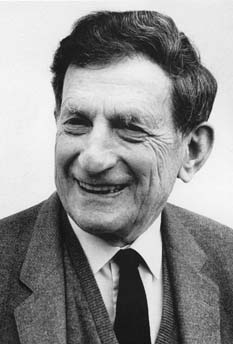
At Scientific American, John Horgan reprints his profile of Bohm (1917-1992) shortly before his death, in which Bohm explains his view:
Although he tried to make the world more sensible with his pilot-wave model, he also argued that complete clarity is impossible. He reached this conclusion after seeing an experiment on television, in which a drop of ink was squeezed onto a cylinder of glycerine. When the cylinder was rotated, the ink diffused through the glycerine in an apparently irreversible fashion. Its order seemed to have disintegrated. But when the direction of rotation was reversed, the ink gathered into a drop again.
 He was consistent:
He was consistent:
Bohm rejected the claim of physicists such as Hawking and Weinberg that physics can achieve a final “theory of everything” that explains the world. Science is an infinite, “inexhaustible process,” he said. “The form of knowledge is to have at any moment something essential, and the appearance can be explained. But then when we look deeper at these essential things they turn out to have some feature of appearances. We’re not ever going to get a final essence which isn’t also the appearance of something.” More.
As his interview with Horgan shows, he did not even think that one can reduce everything to mathematics. He believed in an “implicate order” but doubted that it could be captured by the methods of science alone. It would require a unification of art and science.
He might be right. Much seems stalled just now.
See also: Can there really be a Theory of Everything? Wouldn’t it really be a theology of everything?
How string theory can be a theory of everything
Post-modern physics: String theory gets over the need for evidence
Dusting off a 1970s Theory of Everything could be bad news for supersymmetry
Can a theory of consciousness help us build a theory of everything?
and
Scientific American Science writer John Horgan still doubts cosmic inflation …